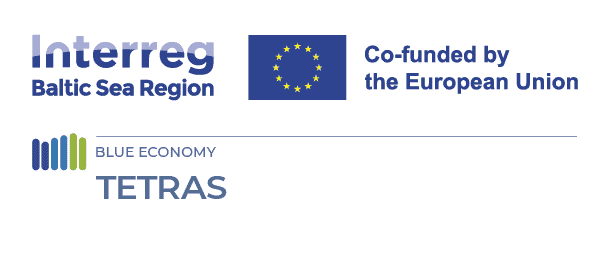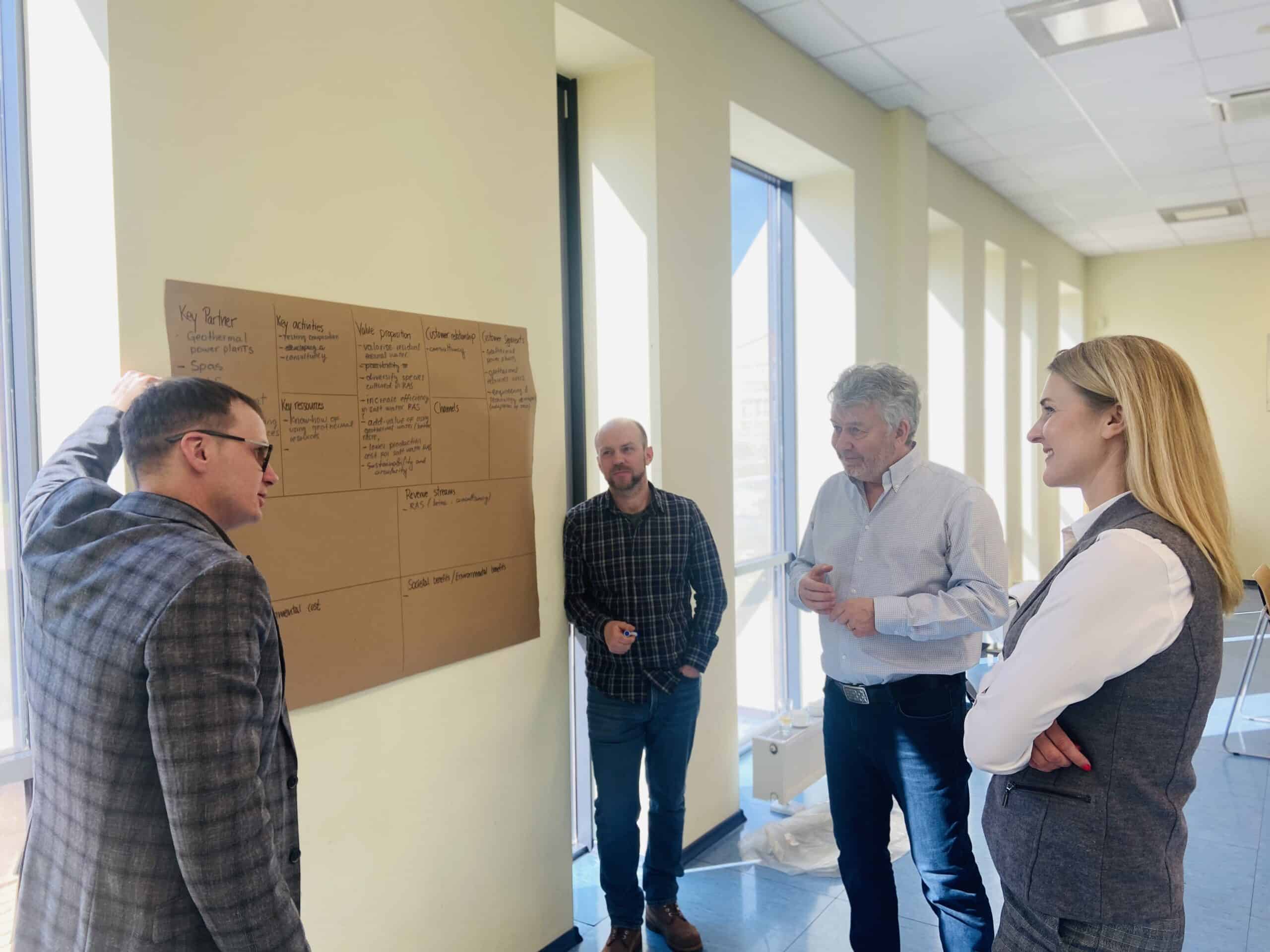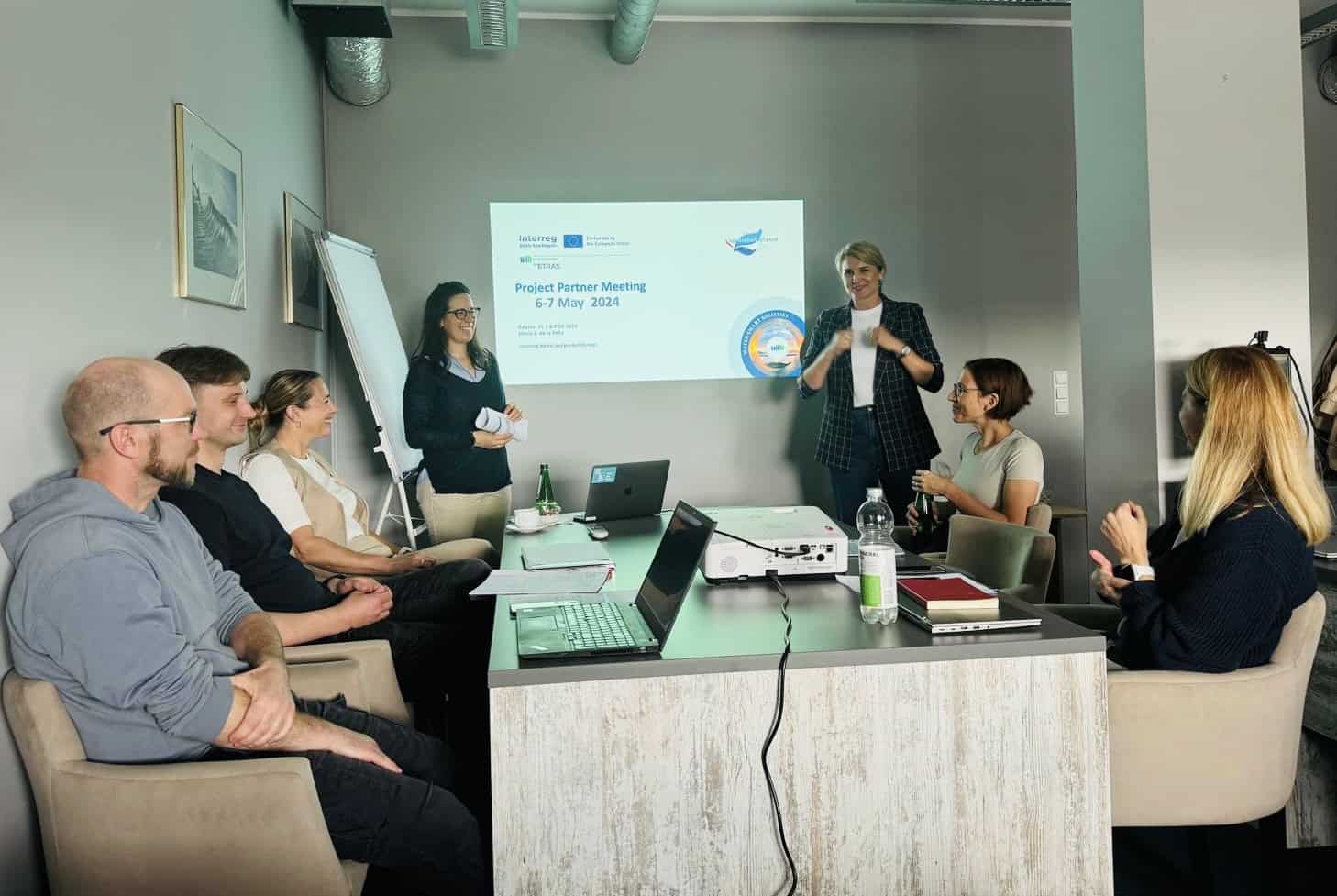
Meet our Partners: Klaipeda Science and Technology Park
20 August 2024
Ten partners from five different countries collaborate in the TETRAS project with the common goal of improving the economic and environmental sustainability of Recirculating Aquaculture Systems (RAS) in the Baltic Sea Region. TETRAS mission? To develop tools and standards to assess and monitor RAS and promote investment, implementation, and expansion of these production systems.
Today, let’s delve into the insights of Klaipeda Science and Technology Park.
Company/Organisation: Klaipeda Science and Technology Park (KSTP)
Country: Lithuania
Interviewee(s): Erika Zavackienė
Website: https://kmtp.lt/en/home/
Klaipėda, a key driver of Lithuania’s economy, stands out as an industrial and service powerhouse with its ice-free port and competitive free economic zone. The city’s Blue Growth 2030 vision is ambitious: to become a world-class blue economy hub, offering rapid solutions and being the best place to live, work, rest, and invest in the Baltic region. Renowned for its strong institutions specializing in marine sciences, health care, and engineering, Klaipėda boasts a high level of general education, making it a center of innovation and growth.
KSTP plays a pivotal role in this dynamic landscape. Established in 2002 through a partnership between Klaipėda University and the Ministry of Economy and Innovation, KSTP is a public institution and non-profit organization dedicated to fostering innovation. As a business support agency, KSTP prioritizes green and blue (marine) technologies, actively participating in international projects and coordinating partnerships and clusters. The park offers specialized services in business development, new product creation, and intellectual property protection, making it a cornerstone of regional progress.
KSTP’s commitment to advancing aquaculture is particularly noteworthy. Recognizing aquaculture as one of the fastest-growing sectors of the bioeconomy, KSTP has focused on developing innovative aquaculture practices to enhance sustainability in the Baltic Sea region. In 2018, KSTP established the Aquaculture Competence Center in close cooperation with Klaipėda University. This experimental base allows scientists to conduct various tests and research while transferring valuable knowledge to students. By embracing advanced technologies, KSTP aims to minimize the environmental impact of aquaculture and support the industry’s growth.
Join us as we explore Klaipėda’s vibrant community, KSTP’s pivotal role in promoting innovation, and their impactful involvement in sustainable aquaculture projects.
KSTP as part of the TETRAS project
What was your motivation to join TETRAS?
Having been involved in project activities for over 20 years, we have built a vast network of partners and like-minded individuals. In Lithuania, as in much of the Baltic Sea Region, recirculating aquaculture systems (RAS) are stagnating. In Lithuania, only African catfish production is steadily growing, which increases a risk of creating a single-species RAS industry with its own set of challenges. Therefore, it is sensible to seek new RAS technologies and knowledge that could open up new business opportunities. Together with our partners, we developed the TETRAS project idea to promote competitive RAS solutions and support the RAS industry at both regional and local levels.
Can you describe your involvement in the project? What are your primary objectives within the project?
In TETRAS, KSTP serves as the Lead Partner, responsible for coordinating the entire project and contributing to the regional pilot on using geothermal water in RAS. Additionally, based on the results of the pilot implementation and evaluation activities, we prepare recommendations for decision-makers on transferable business opportunities.
What specific expertise or unique perspective does the KSTP brings to TETRAS?
The TETRAS project addresses a challenge common to regions across the Baltic Sea: how to harmonize economic development with social and environmental goals. KSTP acts as a bridge between science, business, and decision-makers. With its extensive experience, KSTP can assist businesses in developing their own RAS business plans and help public authorities create business support mechanisms and monitoring frameworks.
What do you consider the main challenges related to RAS implementation in the region?
The main challenges related to RAS implementation are the high initial and operational costs. Additionally, opening new business opportunities and models for innovative and energy-efficient aquaculture in the region poses a challenge. These challenges stem from a lack of demand for skilled personnel and high-quality competencies in the blue bioeconomy sector.
How do you see the RAS sector in Lithuania and the Baltic Sea Region in the next 5 to 10 years?
Continuous improvements in RAS technology are expected to enhance efficiency, reduce costs, and minimize environmental impacts. As the technology matures and proves its economic viability, more investments will flow into the RAS sector. Governments in the Baltic Sea Region are anticipated to implement favorable policies and regulations to support the growth of sustainable aquaculture. This might include subsidies, tax incentives, and streamlined licensing processes. Increased collaboration between research institutions, industry stakeholders, and governments will foster innovation. Joint efforts in research and development will lead to breakthroughs in RAS technology and practices. Overall, the future of the RAS sector in the Baltic Sea Region looks promising, with advancements in technology, supportive policies, and increasing market demand paving the way for its growth and sustainability.
What outcomes or impacts do you hope to achieve through the project?
Our goal is to increase interest in RAS, as we believe it is a highly efficient method of food production. With our experience and partnerships, we aim to help our region define standardized tools for municipalities to assess and monitor RAS applications and integrate RAS into regional development strategies. Our involvement seeks to foster innovation in RAS, share knowledge, and develop new business models that will expand the potential of the Baltic Sea Region.
Stay tuned for more information about the project and its partners!







